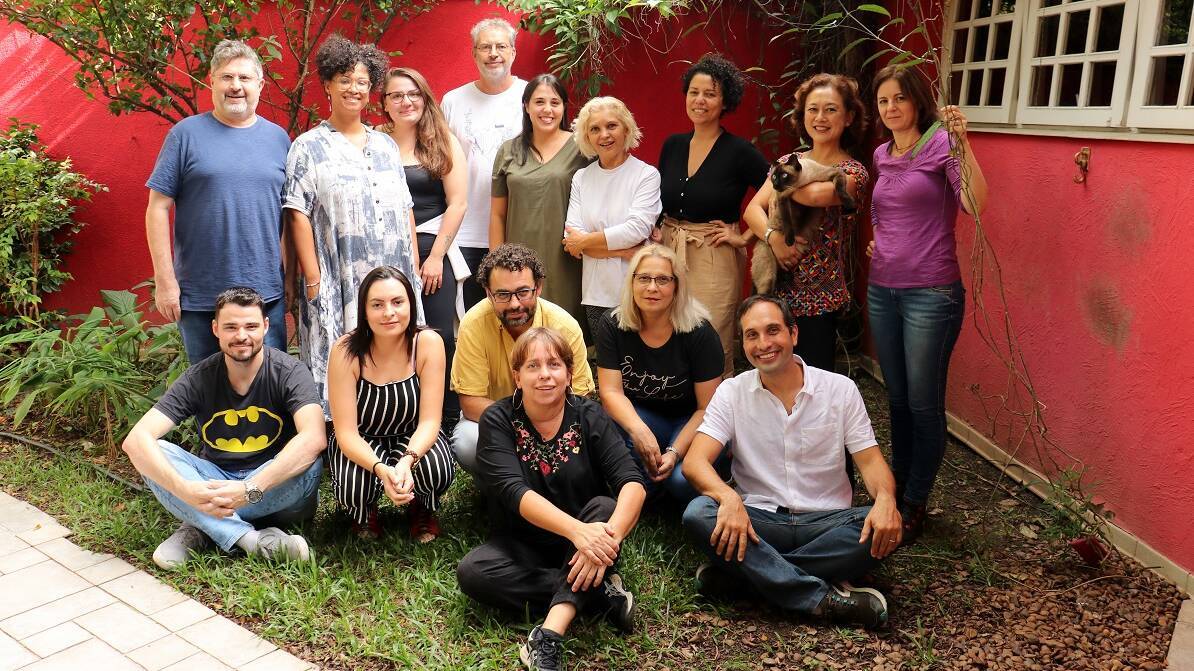Brazil and Paraguay Regional Office
Our regional office in São Paulo coordinates the Rosa Luxemburg Foundation’s activities in Brazil and Paraguay
(Kopie 1)
After four years dominated by reactionary politics and policy, Brazil now looks to new opportunities and challenges. The electoral victory of former trade unionist Lula da Silva in October 2022 ended the presidency of the far-right populist Jair Bolsonaro, who polarized South America’s largest country with fake news and hate speech and set it back years economically and socio-politically.
But Lula’s Workers’ Party (PT) lacks a majority in Congress and will have to accept a number of compromises when reshaping the country. Against this backdrop, social movements and an active civil society are particularly important to advance progressive development and curb the still widespread support for Bolsonaro in Brazilian society. The Rosa Luxemburg Foundation’s Brazil and Paraguay Regional Office in São Paulo focuses on strengthening such movements, and works closely with partner organizations that fight for a just, social, and environmentally conscious Brazil.
Democracy in Brazil is in tatters. The ouster of President Dilma Rousseff in 2016 and the subsequent imprisonment of Lula on questionable corruption charges had already chipped away at the legitimacy of institutions such as parliament and the judiciary. Traditional right-wing parties, supported by the corporate mass media and employers’ associations, sought to use this campaign to bring an end to the PT’s world-renowned social policies and return themselves to power. Instead, they only served to pave the way for Bolsonaro’s successful election campaign in 2018.
He and his ministers made no secret of their contempt for democratic society. The foundation of their strength — Bolsonaro received 49 percent of the vote in 2022 — remains the politicized military and fundamentalist evangelical churches. Given this state of affairs, cooperation between progressive forces is vital. The Rosa Luxemburg Foundation seeks to function as a space that enables dialogue between all groups of the broad left-wing spectrum, from large NGOs to political foundations and social movement actors. Part of that dialogue includes exchange with organizations, parties, and activists in Germany and Europe.
The political situation in neighbouring Paraguay is less dynamic. The arch-conservative government is committed to maintaining power by all means and seeks to limit the scope of opposition and progressive movements. Here, too, the foundation works closely with civil society organizations that fight for social and environmental rights in the city and countryside.
Moreover, the Rosa Luxemburg Foundation’s regional climate programme is coordinated in São Paulo. The programme supports organizations across Latin America campaigning for climate justice and insisting that local people be included in debates around the energy transition. The climate debate in particular shows that there are no easy solutions and that a discussion between all stakeholders constitutes the basis for progress. For this reason, the office regularly publishes studies and books together with its partners and encourages debate with texts and analyses published on our website.
Activities
The Brazil and Paraguay Regional Office works on a wide range of issues with a large number of partner organizations. We seek to link together progressive debates in different thematic areas and enable synergies and joint activities through exchange among each other. Nevertheless, the office currently devotes its attention to two main issues — one due to the political situation in Brazil after the last presidential election, the other as a contribution to the global climate debate.
- Democracy and the Fight against the Far Right
The destructive riot of Bolsonaro supporters in the Brazilian capital only eight days after Lula da Silva took office on 1 January 2023 revealed how dangerous and active the far-right spectrum remains in Brazil. It is important to understand how this movement is structured, why it has so much support in all strata of the population, and how to hold back its alarming growth. All forms of fundamentalism must be critically interrogated, while developing and disseminating alternatives. Important partners include organizations of black women, indigenous peoples and quilombolas [residents of settlements established by Afro-Brazilian slaves], progressive evangelicals, migrant groups, political foundations, and others. - Socio-Ecological Transformation: Alternatives in Energy, Agriculture, and Urban Planning
Ecology and social rights are often seen as incompatible, but a country like Brazil shows that both must go hand-in-hand. The environment cannot be protected without establishing minimum social standards, and no economic growth can be conceived without adopting an ecological perspective. The path towards a more socially just and ecological world must mean overcoming the extractivist model of development and ensuring the participation of all stakeholders in creating alternatives. The protection of their territories is central for our partners when exploring alternatives in the energy sector. In the field of agriculture, the concept of agroecology is leading the way. The alternative in urban policy, uniting social policy and climate policy, is zero tariff.

São Paulo Regional Office
Director: Andreas Behn
Fundação Rosa Luxemburgo
Escritório regional São Paulo
Rua Ferreira de Araújo, 36
05428-000 São Paulo SP
Brazil
+55 11 3796 9901